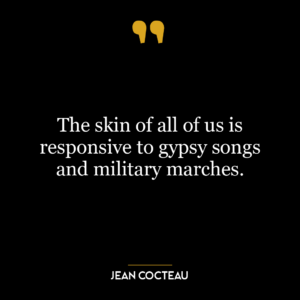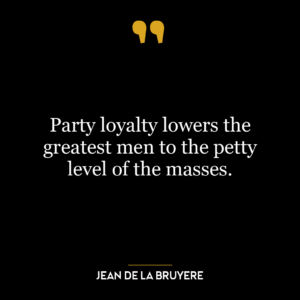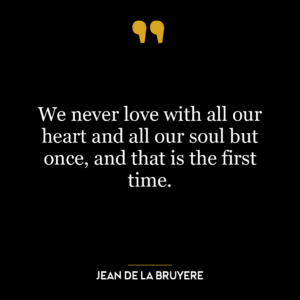This quote emphasizes the significance of loyalty as a virtue. It suggests that loyalty is not just a good quality to have, but it is the ‘holiest’ of all, making it almost sacred or divine. This is because loyalty is seen as a fundamental building block in the formation of meaningful and lasting relationships, be it among friends, family, or partners. It is a reflection of commitment, trust, and integrity, qualities that are universally admired.
In the context of the human heart, loyalty is a choice that one makes to stand by another, regardless of the circumstances. It is a testament to the strength of one’s character and the depth of their love and respect for the other person. It is a quality that transcends superficial differences and withstands the test of time.
In today’s world, this quote is highly relevant. In an era characterized by fleeting interactions and disposable relationships, loyalty is a quality that is becoming increasingly rare. However, its value remains undiminished. Whether in personal relationships or professional settings, loyalty is a quality that is deeply appreciated and highly respected.
In terms of personal development, cultivating loyalty can lead to stronger, more fulfilling relationships. It can help build trust, promote mutual respect, and foster a sense of security. Being loyal to others also means being true to oneself, thereby promoting authenticity and integrity. It encourages us to stand by our commitments and be reliable, qualities that are beneficial in all aspects of life.
However, it’s also important to remember that loyalty should not be blind. It should be based on mutual respect and shared values. Loyalty should never be used as an excuse to tolerate toxic behavior or to compromise one’s own values and well-being.
In conclusion, the quote underscores the deep significance of loyalty in human relationships and its role in personal development. It encourages us to cherish and cultivate this virtue, thereby enriching our own lives and the lives of those around us.















